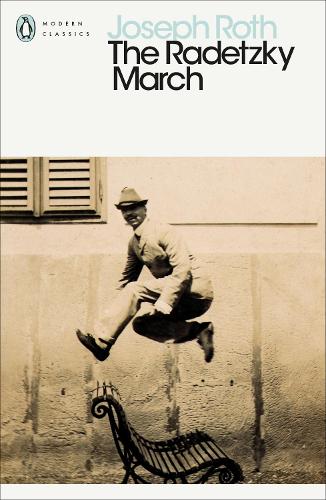
The Radetzky March
(Paperback)
Available Formats
Hardback
Published: 15th November 1996
Paperback
Published: 1st March 2016
Paperback
Published: 15th June 2022
Publishing Details
The Radetzky March
By (Author) Joseph Roth
Translated by Joachim Neugroschel
Penguin Books Ltd
Penguin Classics
1st March 2016
28th January 2016
United Kingdom
Classifications
Physical Properties
Paperback
368
Width 130mm, Height 198mm, Spine 21mm
270g
Description
The sweeping twentieth-century masterpiece of war, idealism and the inglorious end of an empire Strauss's Radetzky March, signature tune of one of Europe's most powerful regimes, presides over Joseph Roth's account of three generations of the Trotta family in the years preceding the Austro-Hungarian collapse in 1918. Grandfather, son and grandson are equally dependent on the empire- the first for his enoblement; the second for the civil virtues that make him a meticulous servant of an administration whose failure he can neither comprehend nor survive; the third for the family standards of conduct which he cannot attain but against which he is too enfeebled to rebel.
Reviews
Roth is Austria's Chekhov -- William Boyd
One of the greatest novels written in the last century -- Allan Massie
One of the most readable, poignant, and superb novels in twentieth-century German: it stands with the best of Thomas Mann, Alfred Dblin, and Robert Musil. Roth was a cultural monument of Galician Jewry: ironic, compassionate, perfectly pitched to his catastrophic era -- Harold Bloom
A masterpiece . . . The totality of Joseph Roth's work is no less than a tragdie humaine achieved in the techniques of modern fiction -- Nadine Gordimer
The best novel is a book that, to my shame, I have only just read. Visiting Vienna earlier in the year, I realised how little I knew about the Austro-Hungarian empire. So I read Joseph Roth's 1932 book The Radetzky March (Penguin Classics) and, as soon as I finished reading it, I read it all over again. -- Chris Patten * New Statesman *
Author Bio
Joseph Roth was born in 1894 into a Jewish family living in East Galicia in the Austro-Hungarian empire. He became a successful journalist and travelled widely, eventually becoming best-known for his literary novels The Radestzky March and Job, his account of Jewish life. He died in Paris in 1939.
